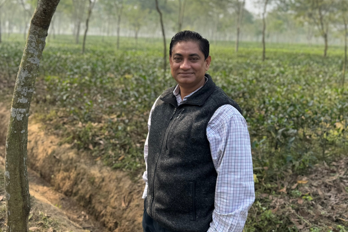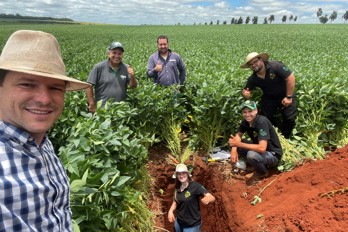Less Chemicals in Tea
The Camellia journey to reduce our environmental footprint requires a strategic approach to farming. The continual monitoring and improvement of soil on our estates is key to our mission of sustainable agriculture. We run a series of programmes, focussed on mitigating and reversing the adverse effect impact of chemicals on the soils. Organic and non-organic fertilisers, soil conditioners and the use of soil restorative practises are common to most of our agricultural operations. In organically certified estates and those following Good Agricultural Practises, we give priority to organic fertilisers using by-products generated on the farm, reducing the need for pesticides, herbicides and fertilizers. At our other estates we also actively look to reduce our use of inorganic pesticides, herbicides and fertilisers.
These are some of the organic solutions we apply:
Mulching consists of organic plant matter which is applied to young tea areas to lower the ground temperature and retain soil moisture. Plants such as Guatemala grass, Citronella grass and Water hyacinth are mostly used as mulch across our tea estates. In Malawi, high volumes of Guatemala grass are grown and managed around our tea fields for this purpose. In Bangladesh, Citronella grass is also grown. The Mulching process helps the young tea to flourish and grow into healthy productive bushes.
Biological fertiliser is organic, eco-friendly and cost effective. It can help replace significant levels of inorganic nitrogen and phosphorus simulate growth and boost yields. The biological fertiliser used in Bangladesh consists of sea fish carcases, natural plant material, yogurt and honey, creating a nutritious cocktail to apply to the young plants.
Composting techniques help to increase the organic carbon within the soil profile and reduce the need for fertilisers. Different combinations of many different organic materials including cow manure are used to make up separate composts. Earthworms are used to recycle agricultural waste (such as banana foliage and indigenous herbage) and produce high quality vermicompost.
Indigenous Technical Knowledge (ITK) is a practise based on cultural traditions and knowledge that is fundamentally about using local and natural resources to achieve sustainable farming. Our Danguajhar dairy in West Bengal produces large volumes of sustainably sourced manure: which is ‘exported’ to other estates where it is mixed with natural plant matter and left to ferment, creating a tonic which is then applied to tea fields. This provides the bushes with not only a nutritious boost but elicits some protection against pest and disease. With the regular application of ITK solutions, there is reduced incidence pests such as Helopeltis and Thrips thus reducing the need for pesticide sprays, providing a more sustainable and natural alternative to pest management.




